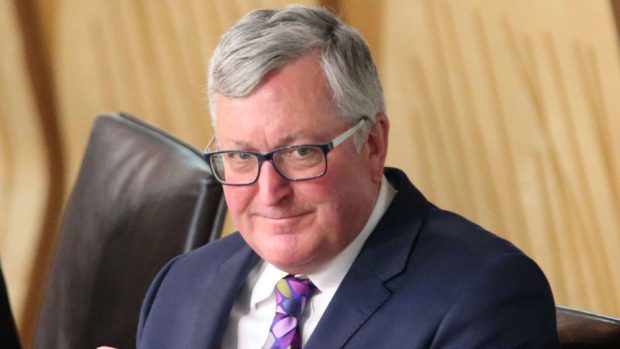Fishing Minister Fergus Ewing has called for fair play over pay for workers employed by Scotland’s catch sector.
Mr Ewing said yesterday he had written to the Scottish Fishermen’s Federation (SFF) after new employment figures for the industry revealed some people are paid much less than the UK national minimum wage (NMW).
According to the Scottish Sea Fisheries Employment 2015 report from Marine Scotland, some deckhands on Scottish boats earned just £887 a month last year.
They were working under crew share arrangements, where fishers are paid a percentage of the value of fish landed after deducting costs for items such as fuel, quota leasing, boxes and ice.
For contracted crew, the average salary for deckhands across all vessel types last year was about £1,200 a month.
Current NMW rates for employees aged 21-24 deliver more than £1,200 a month for a 40-hour working week.
Marine Scotland said a “sizeable proportion” of deckhands (30%) were from countries outside the European Economic Area (EEA).
Mr Ewing said: “The skills and knowledge of fishermen around the globe make a tremendous contribution to our rural economy.
“It is wholly unacceptable to see the report’s findings that some of these fishermen are paid considerably less than the UK national minimum wage.
“I have today written to the Scottish Fishermen’s Federation seeking assurance that it is acting to stop these unfair pay practices among its members.
“I believe the federation can and must use its influence and networks with the owners of fishing vessels to put a stop to unfair and unlawful employment practices.”
He added: “I have also offered to work with the federation and its members to develop a strategy to make pay and working conditions fair for all fishermen working in Scotland’s fishing fleet.”
SFF chief executive Bertie Armstrong said: “The SFF takes seriously any evidence that may be presented on unfairness in employment practices and has already tried to engage recently with the UK Government on the interpretation of regulations covering the employment of non-EEA nationals.
“We would have strongly preferred to have had an opportunity to read the report and the cabinet secretary’s letter, rather than hearing about it first through the press.
“We will, of course, respond to the minister once we have had the chance to read both documents and we are willing to work with the Scottish Government and Home Office to find ways of addressing these issues.”
The Marine Scotland report was based on a survey of 222 vessels employing 753 crew – about 16% of Scotland’s total catch sector workforce.
Nearly one-fifth of the fishers (19.3%) were from four countries outside the EAA – the Philippines, Ghana, Sri Lanka and Belarus.
Fishers working under the crew share system are classed as self-employed, so are not eligible for the NMW or, for people aged 25 and over, the National Living Wage.
